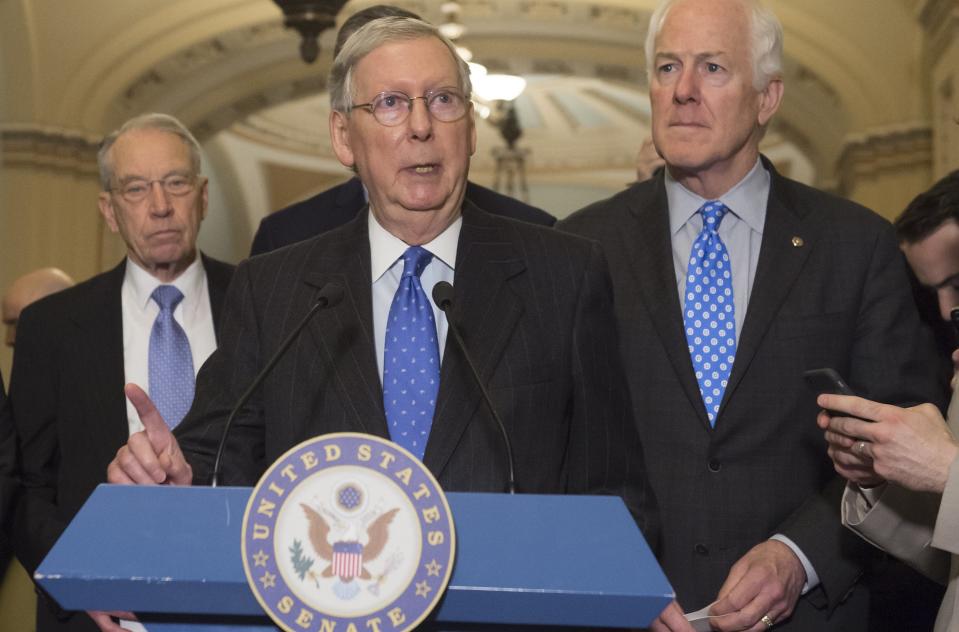Where the Republican Health Care Bill Stands After a Chaotic 72 Hours
It’s been a topsy turvy three days for health care reform (please consider hugging a health care reporter). The Senate’s original Better Care Reconciliation Act (BCRA), which was largely considered to be dead just two days ago, has been revived and somewhat tweaked as of this morning. And the Congressional Budget Office (CBO) is already out with an analysis of that new legislation: 15 million more uninsured Americans next year relative to Obamacare and 22 million more uninsured by 2026. It would also reduce federal deficits by $420 billion over the next decade, according to CBO.
The trouble is, this bill may not actually be the one that gets a vote. It lacks a controversial amendment from Texas Sen. Ted Cruz that would essentially allow insurers to opt out of various Obamacare requirements (such as certain mandated health benefits and protections for people with pre-existing conditions) so long as they offer a plan that does hew to those requirements. And that amendment’s inclusion is widely expected to be included in any bill the Senate votes on, potentially making the new CBO analysis moot.
The agency likely won’t be able to score Cruz’s amendment in time for a vote that’s reportedly planned for early next week. (Arizona Sen. John McCain’s recent surgery and brain cancer diagnosis has added another potential wrinkle to the voting timeline.) But insurance companies have warned that it would lead to exorbitant premium hikes and widespread health coverage losses.

To counteract that narrative, the Department of Health and Human Services (HHS) released its own analysis of the Cruz amendment on Wednesday. Reportedly authored by consulting firm McKinsey, that report came under intense scrutiny from health care experts and analysts who questioned its methodology and transparency (and what they believe is a dubiously rosy conclusion about the amendment’s effect on premiums and health coverage).
At the end of the day, we still don’t know a whole lot about what version of Obamacare repeal will make it to the Senate floor—the original BCRA, the new modified version, the modified version alongside the Cruz amendment, “repeal-and-delay,” or something in between. Neither is it clear that any of those bills can get to 50 votes (each version has been projected to lead to anywhere between 20 million and 32 million more uninsured Americans). But one thing is for certain: The health care debate still isn’t over six months into President Donald Trump’s term.
This essay appears in today’s edition of the Fortune Brainstorm Health Daily. Get it delivered straight to your inbox.
